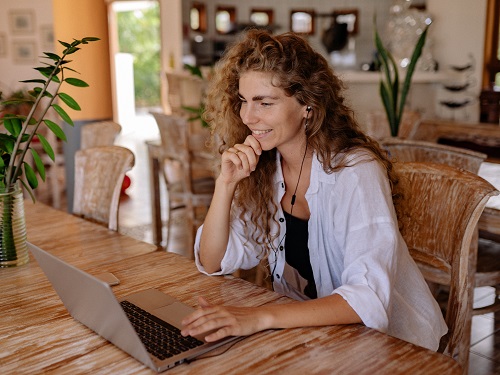
London and San Francisco–based startup Stability AI has announced the launch of ‘Stable Doodle’, a sketch-to-image AI-based tool that converts a simple drawing into a dynamic image.
Creates An Image From A Simple Doodle and Text Description
The new tool from Clipdrop by Stability AI, creates images from a simple doodle (sketched with a mouse) coupled with a text description and a choice of art style, all added through a user-friendly interface.
The 14 styles available in Stable Doodle range from realistic (photography) to cinematic to creative (fantasy art and origami).
How Does It Work?
Stable Doodle uses algorithms to analyse the outline of an image to help generate a coherent result.
The AI technology behind it is a combination of the advanced image-generating technology of Stability AI’s Stable Diffusion XL (an image generation model) with the T2I-Adapter, a condition control solution (by Tencent ARC) that gives more precise AI image generation. The addition of trainable parameters to existing large diffusion models, and the T2I-Adapter enabling inclusion of additional input conditions, such as sketches, segmentation maps, or key poses are what help to create the impressive and flexible image outputs of Stable Doodle.
Who?
Stable Doodle is aimed at both professionals and novices, regardless of their familiarity with AI tools, and is available to try for free on the Clipdrop by Stability AI website here (https://clipdrop.co/stable-doodle) and as an app (iOS and Google Play). Users can begin experimenting with the tool without a login, subject to daily limits.
Benefits
Stability AI says that Stable Doodle can enables designers, illustrators, and other professionals to free up valuable time and maximise efficiency. Also, ideas drawn as simple sketches (provided there’s a good accompanying description), can now be immediately implemented into works to create designs for clients, material for presentation decks and websites, or even create logos. This enables time and cost savings and gives those with few or no design skills and experience the ability to create professional visual results.
Not The Only AI Image Generator
Stable Doodle is by no means the only AI image generator available. Others include DALL-E 2, Jasper, NightCafe, AutoDraw (a similar doodle to image setup), Midjourney, Designs.ai, and more.
What Does This Mean For Your Business?
The big benefits of Stable Doodle appear to be its simplicity for the users – just a doodle and a description – and the scope and quality of the outputs due to power what the tool has under the bonnet (i.e. the Stable Diffusion XL model and T2I-Adapter). Also, it can be tried-out for free, while the Pro version is only £5 per month.
AI image generators (also known as GANs) like Stable Doodle offer many advantages to businesses. The ability to instantly create quality, designer-style images of any kind using just simple inputs like doodles and text descriptions enhances efficiency and time savings and allows any business with no in-house design skills to create tailored, quality images aligned with brand identity and/or customer preferences.
AI image generators thereby contribute to cost reduction by eliminating the need for hiring professional designers or photographers for routine or repetitive tasks. They also enable scalability without increasing workforce and can foster creativity and inspiration by producing novel and unique images that can serve as a source of ideas and exploration for designers and artists.
Businesses of all sizes and types, thanks to AI image generators, can now also ensure visual consistency across various marketing materials and branding efforts, aligning with established style guides or brand guidelines. AI image generators can also facilitate rapid prototyping and design iteration so businesses can iterate and refine designs efficiently.
All that said, at their present level, AI image generators should be seen as tools that complement human creativity and expertise, rather than as substitutes for them, plus very real concerns have been raised by artists whose work may have been used without their consent to train the models behind the image generators and could appear as styles and in outputs.




